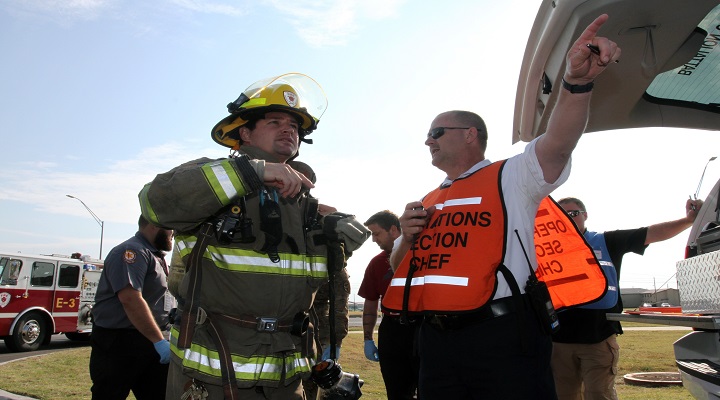In today’s fast-paced world, information travels at the speed of light, especially when a significant incident occurs. Whether it’s a natural disaster, a public safety event, or a crisis situation, the media plays a crucial role in disseminating information to the public. But who takes charge of handling media inquiries at the incident scene? In this article, we’ll explore this vital aspect of incident management, shedding light on the key players and their roles in ensuring effective communication.
Contents
Incident Command and Public Information Officers
When an incident occurs, the first line of communication with the media is typically through the Incident Command System (ICS). Within ICS, there’s a designated role known as the Public Information Officer (PIO). The PIO is responsible for managing and coordinating all communication and media-related activities at the incident scene.
Namrata Sharma’s Astounding Entrepreneur Net Worth
- Roles and Responsibilities: The PIO serves as the primary point of contact for the media. They gather, verify, and disseminate accurate information about the incident to the public through press releases, media briefings, and interviews. Their goal is to ensure that the public receives timely and accurate information to make informed decisions.
- Coordination: The PIO collaborates closely with the Incident Commander and other key personnel to ensure that the messages delivered to the media align with the incident objectives and priorities. This coordination is crucial for maintaining a unified and consistent message.
The Incident Commander’s Role
While the PIO is responsible for media inquiries, the Incident Commander (IC) also plays a critical role in managing media relations.
- Information Flow: The IC provides essential information to the PIO, ensuring that they have the latest updates on the incident’s status, developments, and response efforts. This information flow is vital for crafting accurate messages for the media.
- Media Briefings: In some cases, the IC may conduct media briefings alongside the PIO. These briefings often occur at specified intervals to update the media on the incident’s progress, safety measures, and any changes in the response strategy.
Interagency Coordination
In incidents involving multiple agencies or jurisdictions, effective media handling requires seamless coordination between various organizations.
- Unified Command: In a Unified Command structure, representatives from different agencies work together to manage the incident. Each agency may have its own PIO, and they must coordinate their efforts to ensure a cohesive media response.
- Joint Information Centers (JICs): In complex incidents, a Joint Information Center may be established to centralize media operations. JICs bring together PIOs from different agencies to coordinate messaging, share information, and streamline media interactions.
Managing Crisis Communication
In crisis situations, such as natural disasters or large-scale emergencies, managing media inquiries becomes even more challenging and critical.
- Crisis Communication Plans: Preparedness is key. Organizations and agencies should have well-defined crisis communication plans in place, outlining roles, responsibilities, and communication protocols. These plans ensure a structured and effective response to media inquiries during high-stress situations.
- Media Training: PIOs and key personnel should undergo media training to handle difficult questions, maintain composure, and deliver clear and concise messages even under pressure.
Ethical Considerations
Handling media inquiries at incident scenes also involves ethical considerations.
- Balancing Transparency: PIOs and incident commanders must strike a balance between transparency and security. While it’s crucial to provide the public with accurate information, certain details may need to be withheld to protect sensitive operations or individual privacy.
- Sensitivity: Media personnel often interact with affected individuals and communities. PIOs and incident commanders should approach these interactions with empathy, respecting the emotional impact of the incident on those involved.
Conclusion
In the midst of a crisis or incident, the handling of media inquiries is a complex and vital aspect of incident management. The roles of the Public Information Officer (PIO) and the Incident Commander (IC) are pivotal in ensuring effective communication with the media and, by extension, the public.
The incident scene is a dynamic environment where accurate and timely information can make a significant difference in response efforts and public safety. PIOs and ICs must work together seamlessly to provide the media with the information they need while upholding ethical standards and security considerations.
In an age where information flows rapidly through various channels, effective management of media inquiries is not just a responsibility; it’s a necessity. It ensures that the public remains informed, safe, and empowered to make decisions during incidents and crises. As we navigate an uncertain world, the importance of those who handle media inquiries cannot be overstated, for they bridge the gap between chaos and clarity in times of need.

